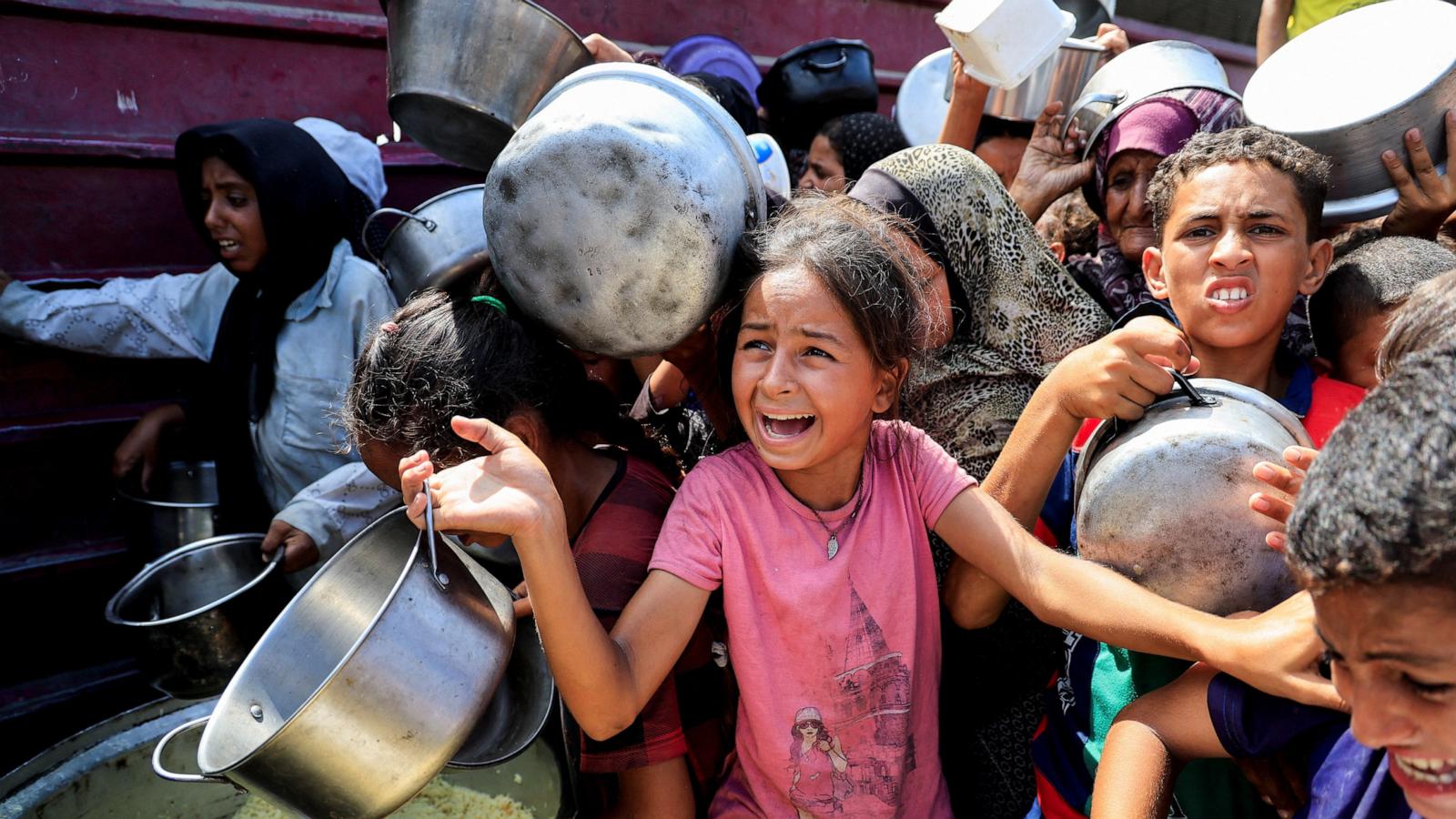Famine is gripping Gaza, affecting roughly half a million people, or a quarter of its population. This crisis is unfolding despite hundreds of aid trucks sitting outside the territory’s borders. According to the UN-backed Integrated Food Security Phase Classification (IPC), the situation is “entirely man-made,” with aid organizations accusing Israel of systematically obstructing food supplies.
Residents in Gaza City are already facing extreme hunger, with the threat of famine spreading to other regions by September if current trends continue.
The IPC identified famine through three key indicators: starvation, malnutrition, and mortality. At least one in five households suffers from severe food shortages, while roughly one in three children is acutely malnourished.
Mortality rates, although difficult to measure due to disrupted monitoring systems, are believed to meet famine thresholds. Gaza’s health ministry reported 273 deaths from malnutrition, including 112 children, underscoring the severity of the crisis.
Gaza’s Food Access Severely Limited By Blockade And Dangerous Distribution System
Access to food in Gaza has long been restricted, but the situation deteriorated sharply after Israel’s war began on October 7, 2023. Since March 2025, a near-total blockade on goods entering Gaza has exacerbated the crisis.
Limited aid re-entry began in late May, but Israel replaced the UN food distribution system with the Gaza Humanitarian Foundation (GHF), reducing the number of accessible distribution points from 400 to four and forcing Palestinians to risk their lives to collect aid.
Accessing food has become dangerous. UN records show at least 1,760 Palestinians have been killed trying to obtain aid, with 994 fatalities near GHF distribution sites, most allegedly caused by Israeli forces. Palestinians face life-threatening risks just to survive, highlighting the deadly consequences of restricted aid and militarized distribution systems.
In late July, Israel allowed more aid trucks and occasional pauses in fighting to facilitate deliveries. Prices of essentials, including flour, remain exorbitantly high, often exceeding $85 per kilo. Despite increased shipments, aid agencies report that current entry restrictions allow only half of the required 600 trucks per day, leaving many Palestinians without sufficient food. Airdrops, though implemented, are criticized as inefficient and dangerous.
Israel Denies Responsibility While Global Leaders Condemn Famine And Warn Of Consequences
Israel has denied responsibility for the famine, blaming Hamas and claiming aid agencies are at fault. Internal US reports found no evidence of systematic diversion of aid by Hamas. Widespread looting occurs, but is mostly carried out by desperate Palestinians, not organized groups diverting aid. The IPC and UN emphasize that unfettered, road-based aid access is essential to prevent starvation.
The IPC’s famine report faced criticism from Israel, which called it biased and based on partial data. However, UN agencies and international leaders condemned the man-made crisis. Secretary-General António Guterres called on Israel to fulfill its obligations under international law, while UK Foreign Secretary David Lammy and UN Human Rights Chief Volker Türk highlighted that starving civilians constitutes a war crime.
Amid famine, Israel has mobilized tens of thousands of reservists for a planned invasion of Gaza City, home to much of the affected population. The offensive could forcibly displace one million Palestinians, worsening starvation conditions. UN organizations warned that vulnerable populations, including children, the elderly, and disabled individuals, may be unable to evacuate, further amplifying the humanitarian catastrophe.

Leave a Reply